Detailed introduction to the University of Artois:
Introduction
The University of Artois is a multidisciplinary comprehensive university located in northern France. Its disciplines cover humanities and social sciences, science and engineering, law, economic management, sports and other fields, providing students with a variety of professional choices.
Overview
Student size: There are nearly 12,500 students, of which international students account for a certain proportion.
Campus distribution: distributed in 5 medium-sized towns of Arras, Bettina, Douai, Lens and Levan. Each of these campuses has its own professional characteristics. For example, the Arras campus focuses on humanities and social sciences, literature, art and language; Betty The Nano campus is famous for economics and management science, secondary industry technology and applied science; the Douai campus is mainly for law and political science; the Lens campus is good for science and technology and economic management; the Levan campus is mainly for sports science and technology. Core subjects.
History **: The University of Artois was founded in 1992 as part of the Université Nationale de Lille III.
School running strength
Faculty: There are 1,105 administrative and teaching staff, many of whom are experts and scholars with profound attainments and rich teaching experience in various subject areas.
Scientific research cooperation: The school has a total of 17 research laboratories and 22 research centers in each branch. 3 of them are formal cooperative units of the French National Center for Scientific Research (CNRS), and 13 are cooperative reception research groups. The school has strong scientific research strength. Provide students with opportunities to participate in scientific research projects and cultivate students' scientific research capabilities and innovative thinking.
Nature of institution
The University of Artois is a public university.
educational philosophy
Focus on teaching innovation, emphasizing the combination of knowledge acquisition and vocational skills training, committed to creating a good environment for students to learn and cultural exchanges, and cultivating high-quality talents with practical ability and innovative spirit to promote students' professional integration and social integration flow.
Key laboratories and disciplines
Key laboratories: The school’s 17 research laboratories are distributed in different disciplines, providing important support for scientific research in related disciplines, such as physics, chemistry, biology, computer science, economics, law and other disciplines. The laboratory promotes cutting-edge research and application transformation in various disciplines.
Key subjects:
Humanities and Social Sciences: Literature, history, geography, philosophy, sociology, linguistics and other disciplines are strong, among which the teaching of French as a foreign language is particularly outstanding, providing professional training for French learners and educators.
Economic management: Economics, management, finance, marketing and other majors have achieved remarkable results in teaching and scientific research, cultivating a large number of economic management talents who adapt to market demand, and their entrepreneurship and project management majors provide students with opportunities to start their own businesses. Required knowledge and skills training.
Science and engineering: Mathematics, physics, chemistry, biology, computer science and technology, electronics and electrical, automation and other disciplines continue to develop, providing students with a solid foundation and professional knowledge in science and engineering. Electronics, electrical, and automation majors help students master Professional knowledge and practical skills in the field of electrical engineering.
Law: The law major has cultivated many legal professionals and conducted in-depth research in legal theory and practice. Its legal courses cover multiple legal fields and provide students with a comprehensive legal education.
Faculty
The University of Artois consists of 8 faculties, 2 technical institutions (IUT), 1 engineering school and 1 continuing education department, as follows:
Arras Campus: It has the School of History, Geography and Heritage Studies, the School of Foreign Languages, the School of Literature and the Arts, and the School of Economics, Management, Administration and Social Sciences.
Betina Campus: There is Betina Technical College and School of Applied Sciences.
Douai Campus: There are law schools and colleges of science.
Lens Campus: It houses the Lens Technical College, which mainly covers professional fields such as business, management, information technology, digital media research, and health services.
Lewan Campus: There is a sports academy.
Ranking
Among the many public universities in France, the graduation rate of some majors at the University of Artois, such as economics and management and sports science, is among the best in France.
cost
As a French public university, the tuition fees of the University of Artois are uniformly stipulated by the French government and are relatively low. Generally, the annual tuition fees for undergraduates are about 200-400 euros, and the annual tuition fees for masters are about 400-600 euros. For example, teaching French as a foreign language , Physical Activity and Health, Land Management and Local Development all have a registration fee of 243 euros.
campus
Teaching facilities: Each branch is equipped with a university library, sports facilities, etc., providing students with good learning and living conditions.
Student services: The school has various agencies such as the Orientation Guidance and Information Office, the Employment Service Office, the Social and Cultural Life Office of College Students, and the University Sports Activity Service Office to provide students with a full range of services and support and help students better adapt to the university. Life and planning for a future career.
Accommodation conditions: The Arras and Betina campuses also have student apartments, providing students with convenient accommodation options.
Cultural exchange: The school also has a Confucius Institute, jointly founded by Hanban, Nanjing University and Artois University, which promotes cultural exchanges between China and France.
-
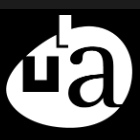
University of Angers
-
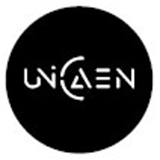
University of Caen Normandy
-
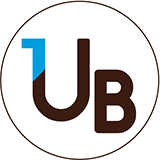
University of Bordeaux
-
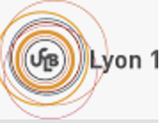
Claude Bernard University Lyon 1
-
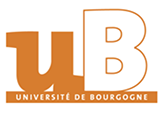
University of Burgundy
-

CY Cergy Paris University
-
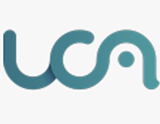
Clermont Auvergne University
-
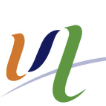
University of Artois
-
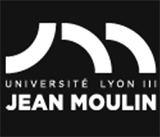
Jean Moulin University Lyon 3
-

University of Franche-Comté
-

Mesoamerican University
-

Istmo University
-

Mariano Galvez University of Guatemala
-

Regional University of Guatemala
-

Galileo University
-

Francisco Marroquín University
-

Rafael Landívar University
-

University of the Valley of Guatemala
-

University of San Carlos of Guatemala
-

Technological Institute of Tlaxcala Plateau
-

Golfo University
-

Technological University of South Sonora
-

Technological University of Huejotzingo
-

Tizimín Institute of Technology
-

Chilpancingo Institute of Technology
